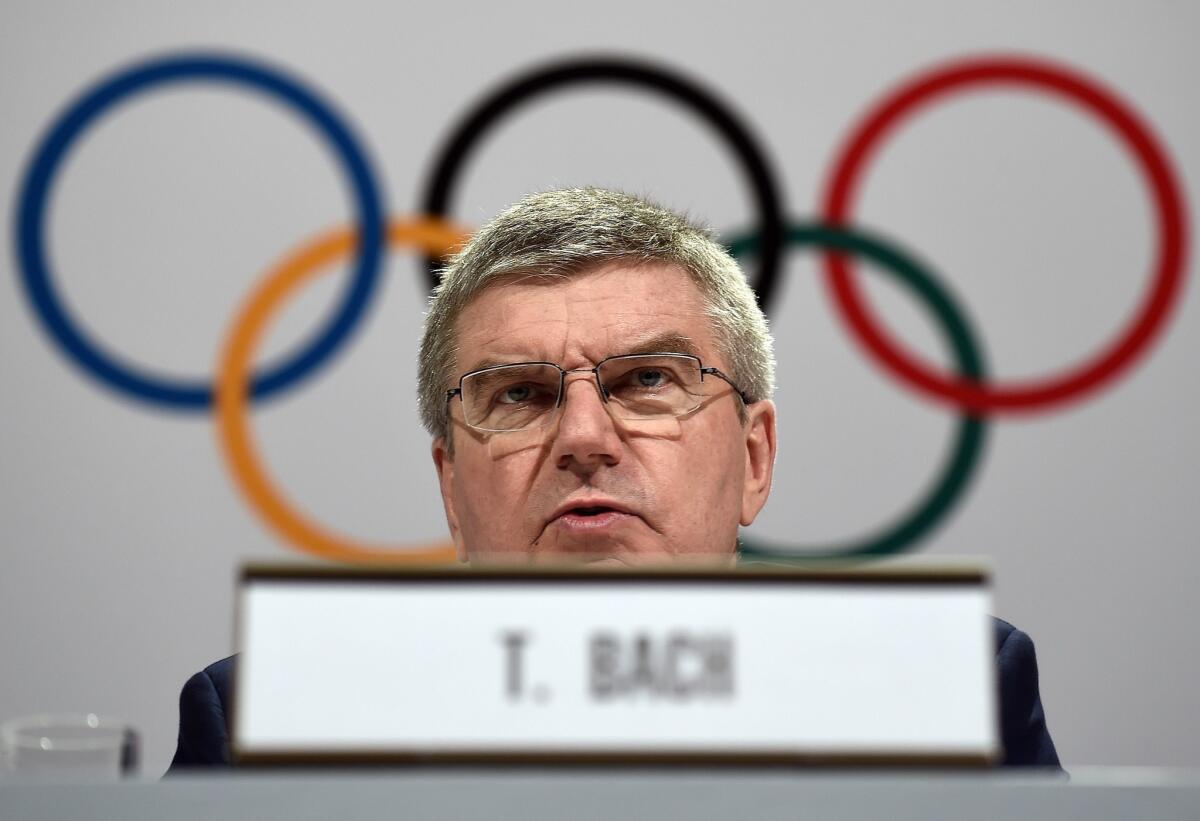Olympic Committee session ends with talk of bidding, doping, pollution

International Olympic Committee president Thomas Bach gives his closing remarks Monday at the conclusion of the 128th IOC session in Kuala Lumpur.
- Share via
The International Olympic Committee on Monday wrapped up a busy session that saw a host selected for the 2022 Winter Games, a shake-up in the bidding process and discussions about renewed doping concerns.
Days after Beijing was chosen for 2022, membership decided to eliminate the cut-down phase in considering future hosts.
“We changed the philosophy of bidding,” President Thomas Bach said. “And we also changed the whole procedure.”
The IOC previously narrowed the field about halfway through the process, with only four or so candidates advancing to the final stage in which they make presentations to the membership and stand for a vote.
Now, every qualified applicant will reach the ballot phase. Final presentations and voting, which used to take place on the same day, could stretch much longer.
Four cities -- Paris; Rome; Hamburg, Germany; and Budapest, Hungary -- have declared their intentions to bid for the 2024 Summer Games The U.S. is also expected to submit a candidate, with Los Angeles considered the frontrunner.
Toronto and Baku, Azerbaijan, could also join the race in coming days.
Facing questions as the IOC session ended in Kuala Lumpur, Malaysia, Bach said he was aware of a German media report alleging that international track federation records show scores of past medalists with suspicious test results.
Bach said he spoke with the World Anti-Doping Agency about the issue.
“If there should be cases involving results at the Olympic Games, the IOC will act with zero tolerance,” he said. “At this time we have nothing more than allegations. We have to respect the presumption of innocence for the athletes.”
The president responded to lingering concerns about pollution at water venues for the 2016 Rio de Janeiro Olympics by saying Brazilian authorities had conducted tests and received assurances from the World Health Organization that athletes will not be at risk.
Also on Monday, two new members were elected. The committee added Mamadou Diagna Ndiaye, a Senegal sports official, and Nenad Lalovic, president of an international wrestling organization.
More to Read
Go beyond the scoreboard
Get the latest on L.A.'s teams in the daily Sports Report newsletter.
You may occasionally receive promotional content from the Los Angeles Times.











